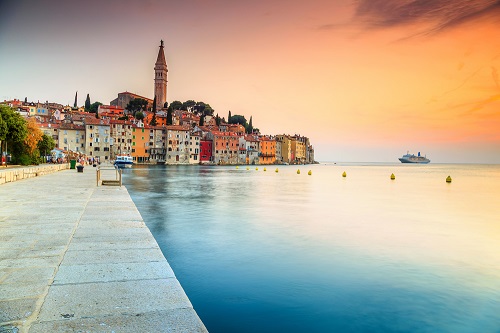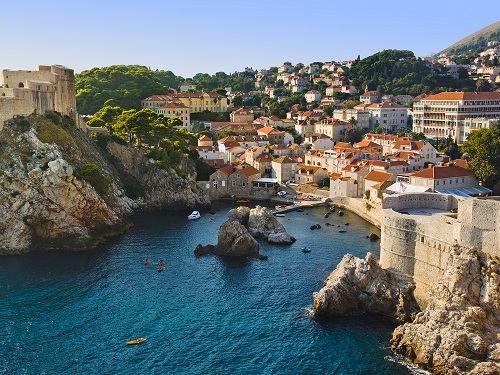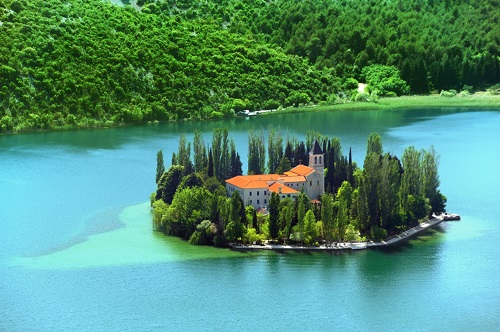Croatia, the UK and the USA all have different healthcare systems. However, each is two-tier, with public and private sector healthcare and insurance. Please read on for more information.
Oncological treatment in the USA
If you need to seek cancer treatment in the US, and you are not eligible for Medicare or its sister program, Medicaid, you will need a health insurance policy that covers you for oncological treatment. The care that you receive will be of a high quality.
The American Society of Clinical Oncology has conducted surveys, which show that patients are very satisfied with their care in collaborative practice models. David Chan, at the UCLA Oncology Centre, told Forbes that overall survival rates for cancer are better in the USA than anywhere else in the world. This may be due to over-testing and aggressive treatment, caused by fears of litigation from patients. In saying this, some countries beat the USA in regard to certain types of cancer.
Chan also notes that new treatments, such as immunotherapy, are more widely available in the US than in nations that have budget-capped national health systems.
However, the US system is under strain, due to the insurance-based nature of American healthcare. Providers noted that payer pressures were at the top of their list of challenges, with oncology practices experiencing issues in day-to-day operations, often related to payment, reimbursement, and competition.
Pain management has become an issue in the US in relation to oncological patients, due to the recent opioid crisis. Cancer survivors report that “anti-opioid sentiment can be pervasive and hurtful.”

Oncological treatment in the UK
If you are a British resident who is returning home for treatment, you will still be entitled to this under the NHS.
If you are an overseas expat living in the UK, and you need to undergo oncological treatment, you will need to have resident status in order to qualify for this. However, if you are coming from outside an EU member state, and you are planning to remain in the UK for more than six months, but are not intending to move here permanently, you may be required to pay a surcharge (the Immigration Health Surcharge or IHS) at the time of your visa application.
The standard surcharge fee is currently:
• £300 per year per person for students and each of their dependants
• £400 per year per person for everyone else
The full amount will be paid upfront for the duration of your visa.
Depending on your situation, you may not have to pay the surcharge. For example, you will be exempt if you are the dependant of a member of the forces who is not subject to immigration control.
If you are diagnosed with cancer and are eligible for treatment, you will be fast-tracked by the NHS into your local oncology department, and a course of treatment will be outlined for you by the oncology team. This may consist of surgery, radiotherapy or chemotherapy, and possibly immunotherapy, depending on the type of cancer that you have. You will not need to pay out-of-pocket for any treatment that you receive, including for any stays in hospital. Oncological treatment under the NHS involves follow-up care. This means that you will have check-ups with your consultant on a regular basis (e.g. every three months, then every six months, then annually) after your treatment has finished.
Taking out private health insurance will not make a great difference to the quality of your cancer treatment in the UK. Private and public patients receive the same levels of medical care. Private insurance will also not necessarily speed up your access to treatment, since the NHS tends to place a high priority on cancer patients. However, private cover will give you more comfortable facilities, such as a private room in a hospital.
Oncological treatment in Croatia
Croatia has a good standard of both private and public healthcare, although the public sector has suffered cuts, following the 2009 recession, and is currently overstretched. The public health system is regulated by the Ministry of Health and the Ministry of Finance, and healthcare institutions are run both by the central government and regionally.
There are three main types of national health insurance coverage:
• Obavezno zdravstveno osiguranje – public basic health insurance
• Dopunsko zdravstveno osiguranje – public or private supplemental health insurance
• Dodatno zdravstveno osiguranje – private supplemental health insurance (usually offered by banks as well as insurance companies)

National health insurance is mandatory for everyone in Croatia. If you are an EU citizen, or are applying for residency but are from outside the EU, and are working in Croatia, you will have to pay contributions into the Croatian Health Insurance Fund (HZZO). You will also need to pay contributions into the scheme if you are self-employed.
Once you have registered, you will be issued with a card, which you must bring with you to all your medical appointments. You will need a GP’s referral if it is thought that you may be suffering from cancer, and you will be put into the care of the local HZZO registered hospital, if you choose to access the public healthcare system.
Although you usually need to make small co-payments for treatment under the HZZO, there is an exemption for treatment of cancer.
In Croatia, around 23,000 patients are diagnosed with cancer every year, and around 11,000 people die annually from the disease. Recent surveys indicate that the cancer survival rates in Croatia are in the lower half of the European rankings. However, it is in the top third of developed countries, in terms of screening, diagnostics and therapy.
Survival rates for children are relatively good, but breast and lung cancer survival rates are lower than in some of Croatia’s neighbours. The government has established a national cancer plan to combat the disease, and is increasing screenings for colon and breast cancer.
The country scores poorly in terms of risk factors and awareness.
You may prefer to be treated in your home nation, whether in the public or the private sector, or to opt for private treatment at a Croatian clinic.
Overall, the quality of your care would probably be best in the USA, but treatment can be exceptionally expensive there. Your cancer care in both the UK and Croatia would still be of a high standard, but would cost substantially less, or could even be free.

